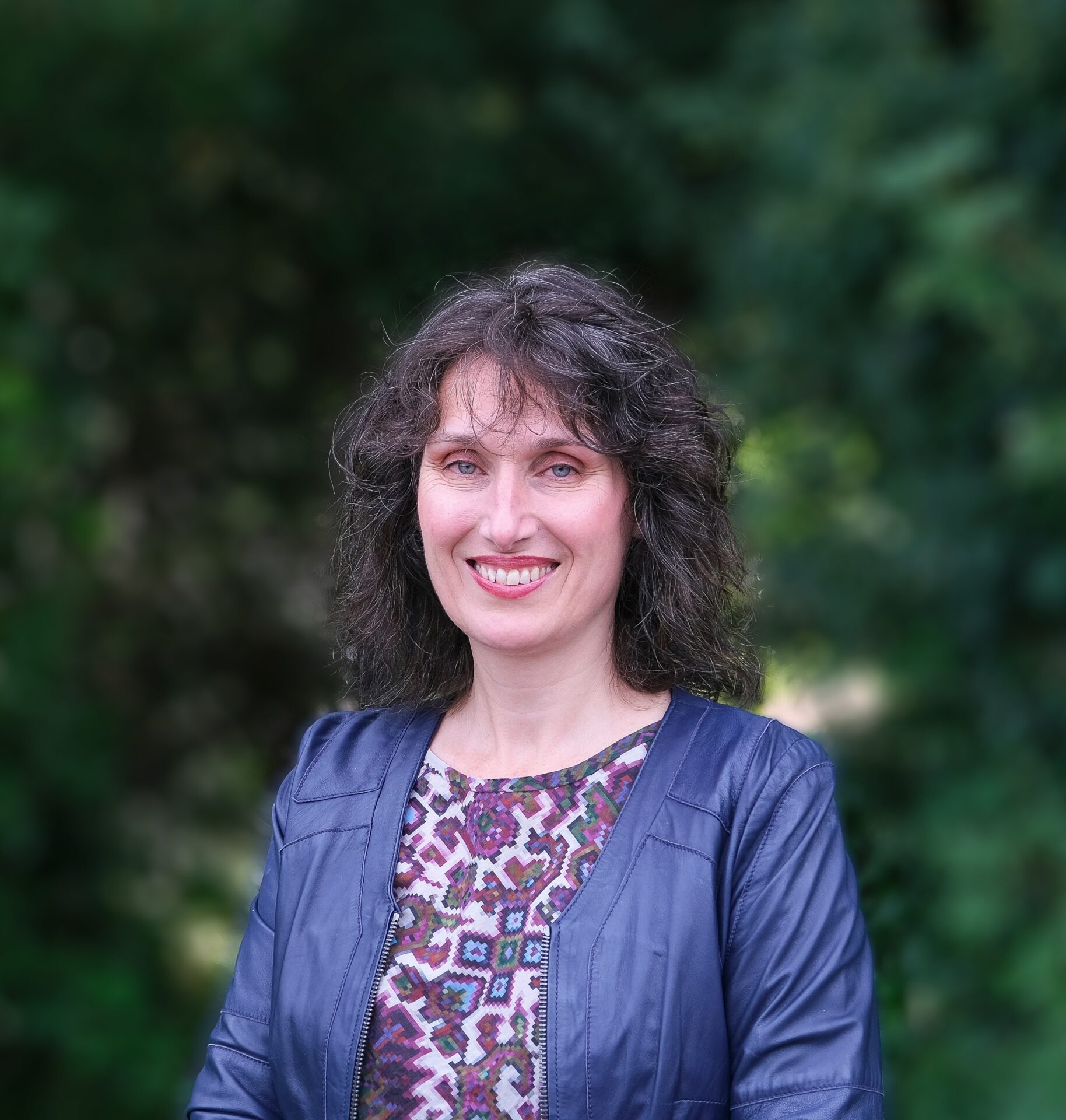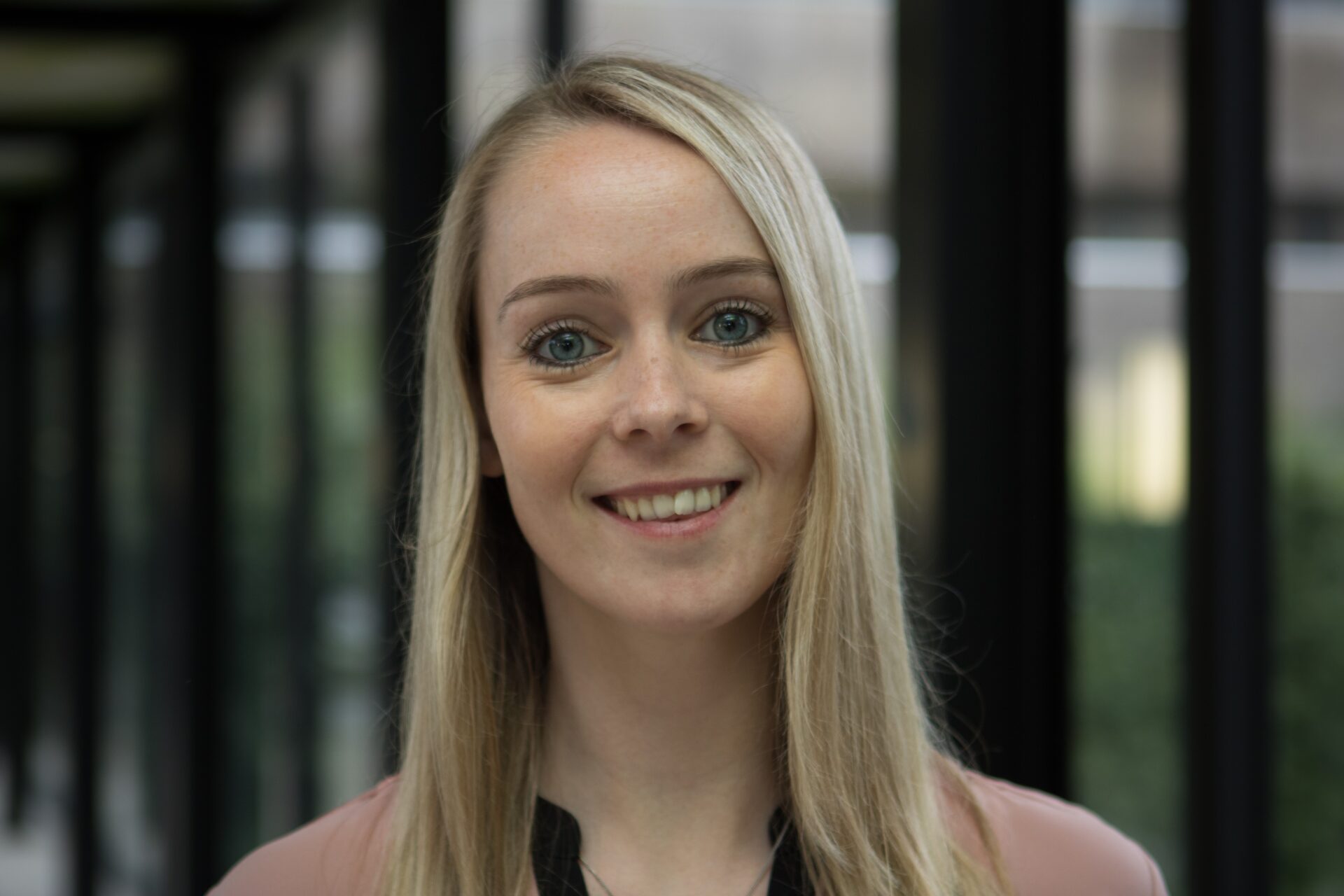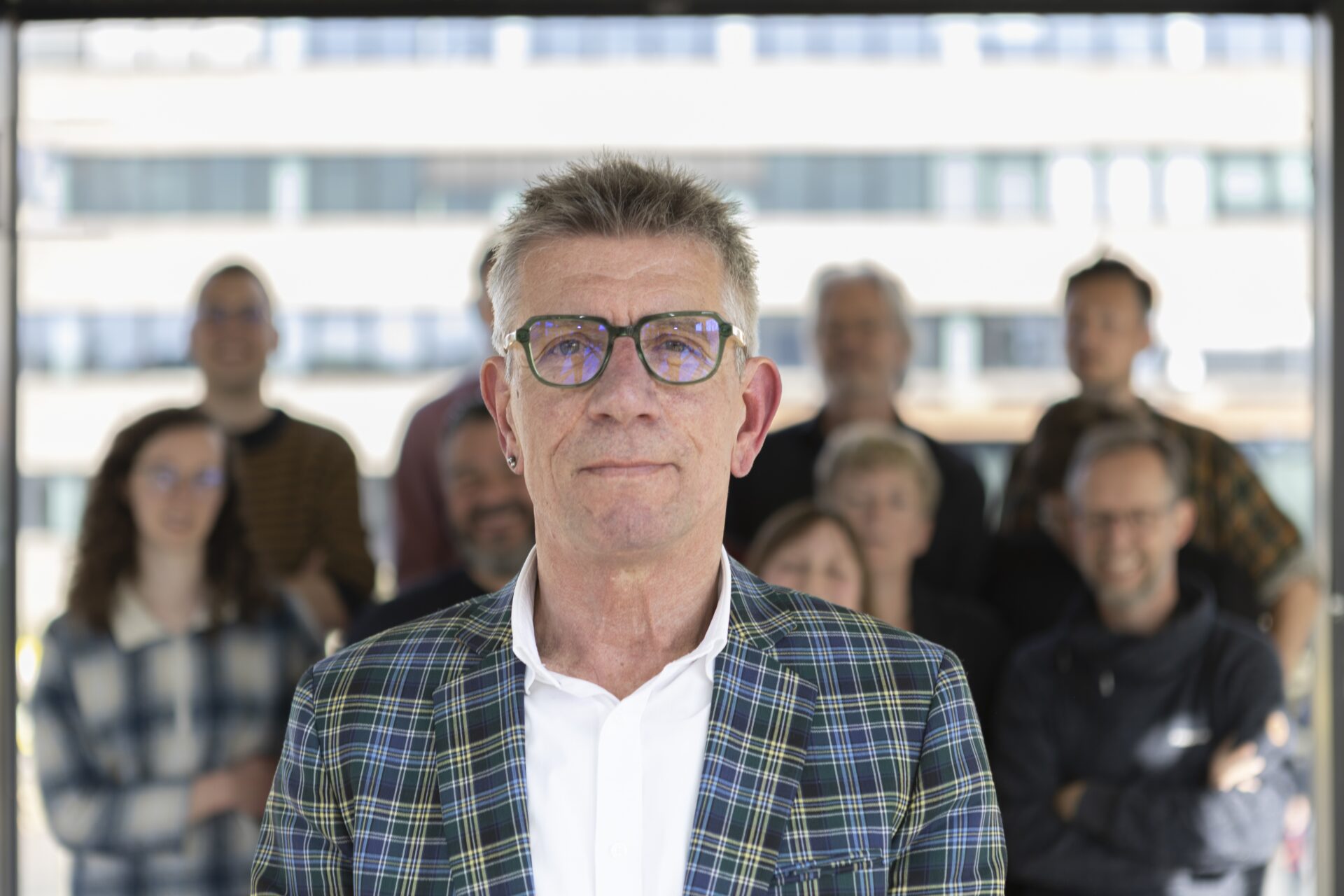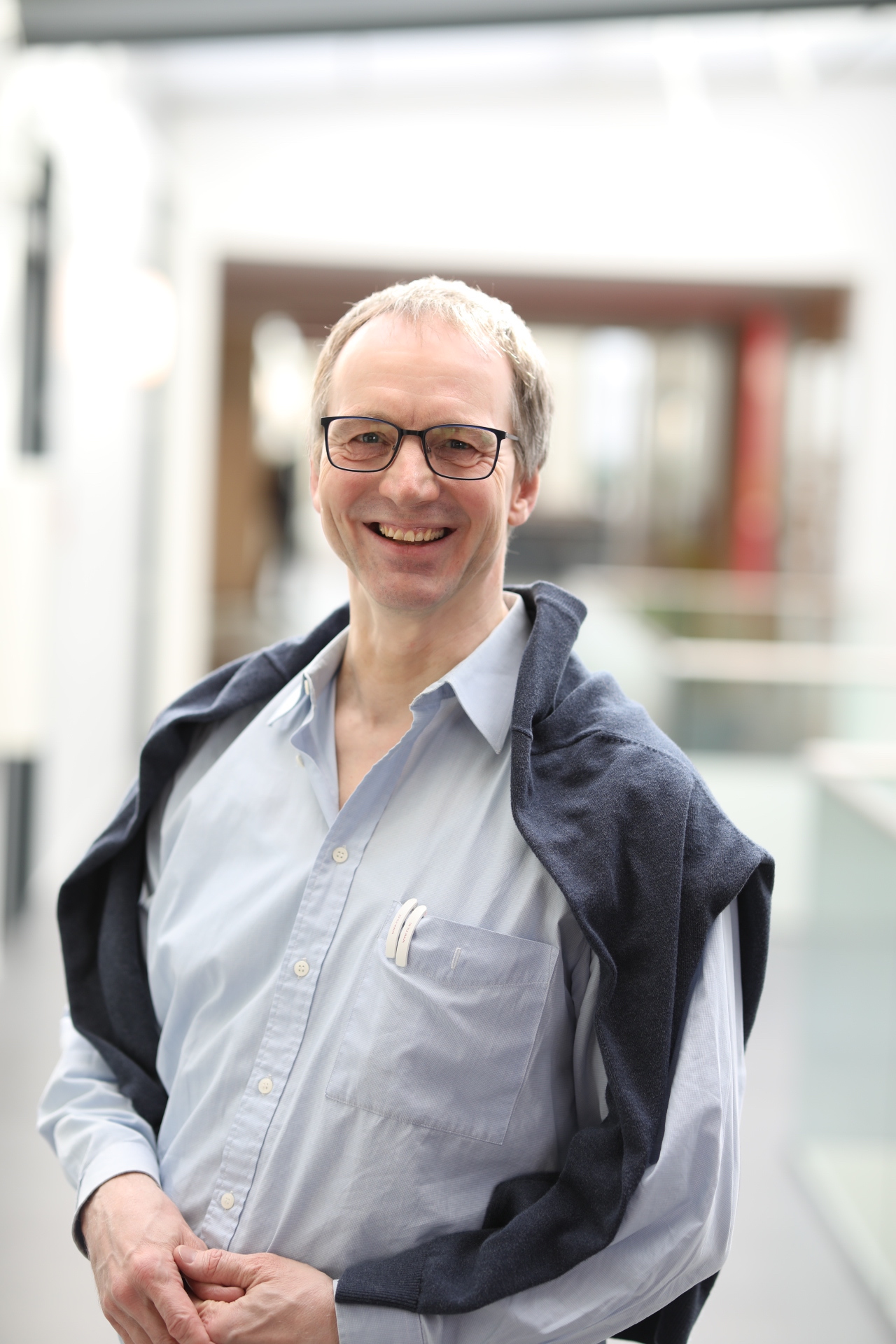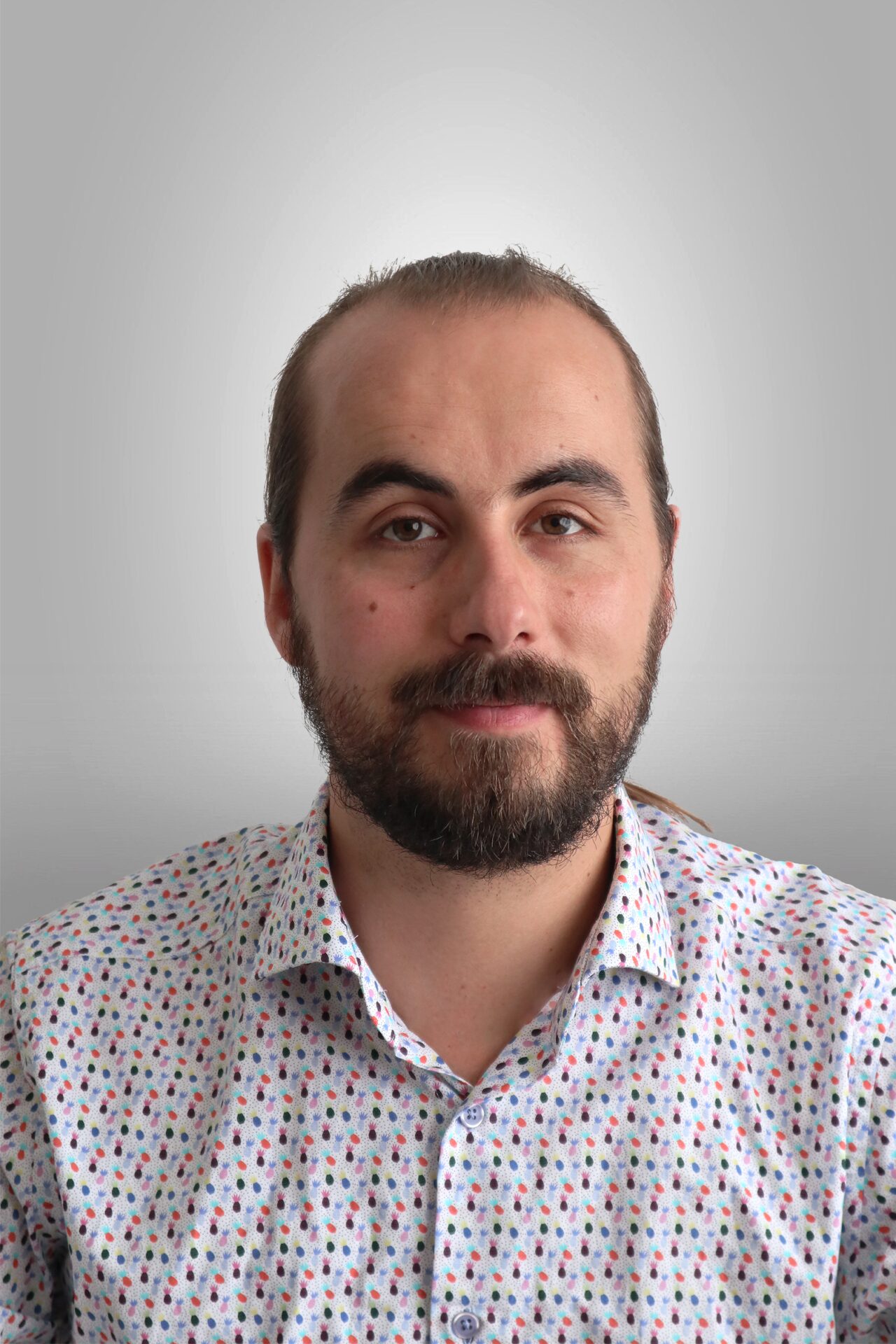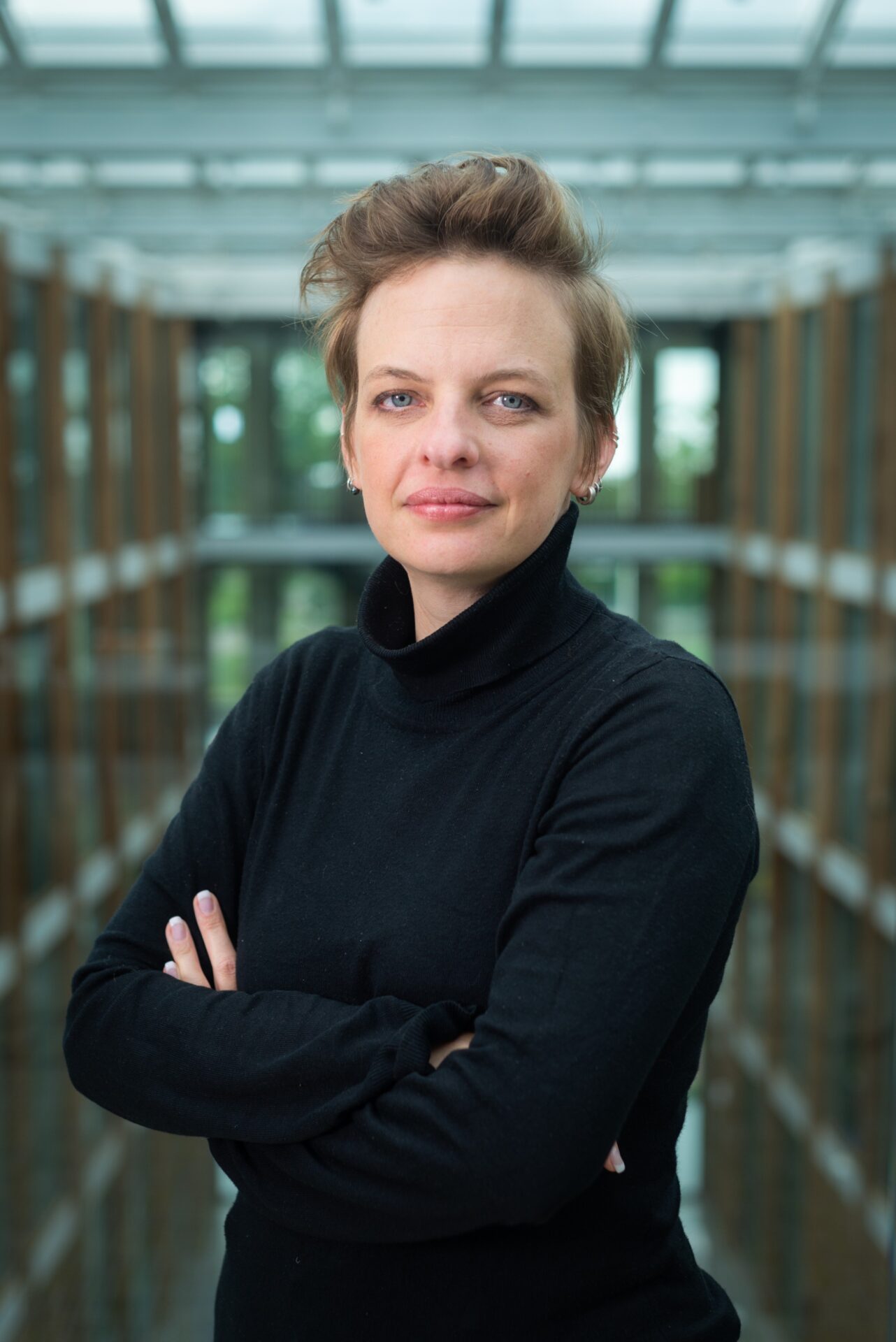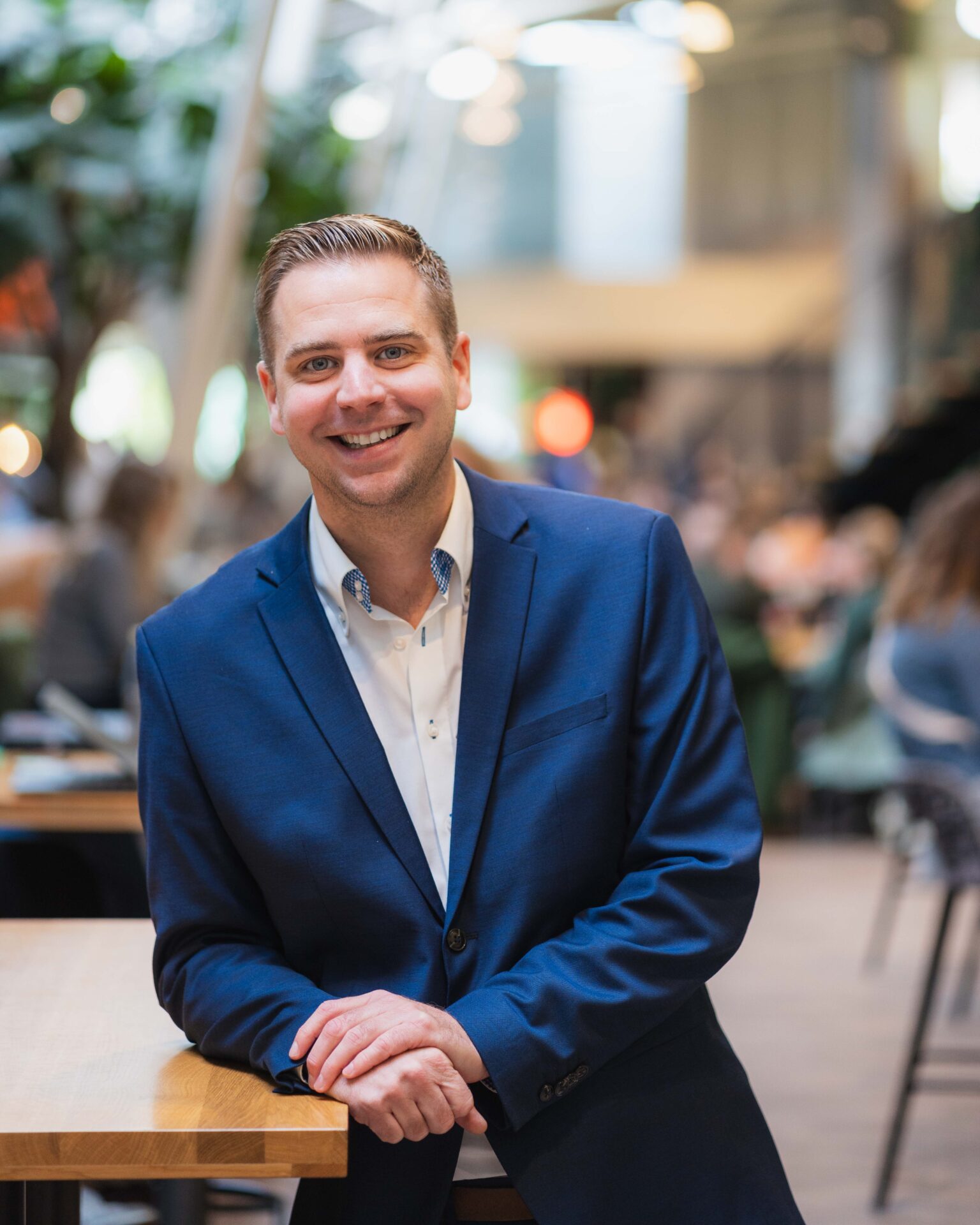The elections are alive and kicking: these seven parties want to get into the Works Council
-
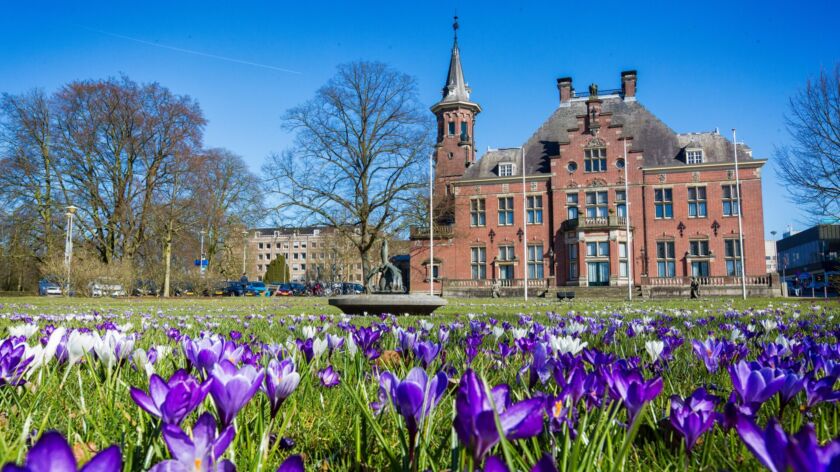 Huize Heyendaal. Foto: Dick van Aalst
Huize Heyendaal. Foto: Dick van Aalst
As many as seven parties are taking part in the Works Council elections, which will take place from Tuesday 20 May to Monday 26 May. Who are these parties and what do they stand for? VOX had a chat with the party leaders.
All party leaders have noticed it: the Works Council elections are alive and kicking. That has not always been the case in the past decade. As the main drive behind this revival, party leaders cite the staggering challenges facing the university – budget cuts, work pressure, internationalisation, social safety, sustainability, et cetera – and the impact they have on employees.
The fact that no less than seven parties* are running in the elections also makes it harder to secure one of the 21 Works Council seats. That makes campaigning more important than ever. Those elected will be part of the University Joint Assembly starting from next academic year, together with the University Student Council (USC) and the Executive Board, among others. But who are these parties and what do they stand for? An overview.
Inge Bleijenbergh, AOb:
‘We want an inclusive organisation in which everyone feels at home: academic and support staff, Dutch people and internationals, students and staff. Social safety has been a point of focus for us for years, and it remains so. The procedures are now in place, but what matters is that they work in practice. People should feel safe to report complaints, and poorly performing supervisors should not get off scot-free.
‘As a trade union group, we can build on the expertise of the General Education Union. That means legal support as well as a place at the negotiating table of the Local Council, for example on topics such as employment conditions, collective holidays, and Recognition and Rewards. That gives us weight. As AOb, we stand for dialogue, but also for action where necessary.
‘Cuts lead to a lot of pressure and uncertainty. Especially now, it is important to maintain opportunities for permanent appointments and advancement. At the same time, we continue to call attention to sustainability: a green campus, biodiversity and healthy, energy-efficient buildings.
‘In the past period, we took firm action as a party when a Dean was appointed at the Faculty of Law who lacked support among the staff. We joined forces with the AUB party, and eventually that appointment was withdrawn. We also took action against the cuts: this let to a total of three demonstrations and a strike, which we organised together with FNV. Three organisers of these actions are now on our list.
‘We stand for solid employee participation: looking critically at budgets, monitoring policies, assessing promises against practice. We don’t just want to react to incidents, but to structurally monitor what happens at the university.
‘We are a union with a constructive attitude’
‘Our list is balanced: we have a mix of experienced members and newcomers, a good male-female balance, and representatives from all faculties, from PhD candidates to professors. Although we are historically more oriented towards the academic staff, we also take the interests of support staff seriously.
‘Right now, we have five seats. We hope to maintain this number or expand it to six. Employees who vote for us choose a union with a constructive attitude, which remains in dialogue with the Executive Board but also sets clear limits when necessary. We are campaigning online and hope to be visible through our actions as well as through communication from the union.’
Lieke Verheijen, AUB:
‘One of the initiatives of our party in the last council term was the appointment of a new interim Dean at the Faculty of Law. We put this forward together with the AOb party because the appointment of a previous interim Dean had not gone according to the rules. Indeed, as AUB, we believe it is essential that appointment procedures are thorough and transparent.
‘Within the Works Council, our party often collaborates with other parties and with the University Student Council. For instance, we pushed hard for concrete follow-up steps following the Labour Inspectorate’s report on workload, which gave cause for concern. And when the Executive Board proposed increasing tuition fees for non-European students, we opposed this with a negative recommendation. We also constantly insist on new policies being communicated clearly to employees.
‘We critically reviewed the internal regulations that the Executive Board wanted to introduce after the demonstrations on campus. Of course, we understand that education and safety must be safeguarded, but the rules must be clear and in line within national laws and regulations, such as the right to demonstrate. These are the things our party focuses on.
‘We find it important that the Executive Board takes a people-oriented and transparent course’
‘Budget cuts are and will obviously remain a major concern over the next two years. At the same time, we do not want to lose sight of themes such as workload, social safety, sustainability, and internationalisation. Regarding workload and safety, the university has taken steps in the right direction in the past two years, but we need to ensure that we maintain and build on that progress – even in financially difficult times.
‘In light of the budget cuts, we believe it is important that the Executive Board takes a people-oriented and transparent course. This went wrong, for example, when the news about the Honours Academy leaked out prematurely.
‘Our party is completely independent and, unlike some other parties, does not come from a union. We are there for both academic and support staff. Our list includes employees from almost all faculties and Radboud Services. We distinguish ourselves by being critical where necessary, but always looking for constructive solutions. We now have six seats. With 11 strong candidates, we hope to get seven this time.’
Lau Schulpen, FNV:
‘Within our party, we work on a consensus basis, with a unique mix of support and academic staff. As a result, we get signals from many different corners of the university. Our party is also affiliated with a national union. This gives us backing as well as access to the Local Council, in which two of our party members have seats.
‘In the last council term, we prioritised issues such as the budget cuts, animal testing, and a pay rise for hospitality workers. Transparency is one of our focal points. We want the Executive Board to communicate more clearly and act more quickly than was the case, for example, with the advisory committee on international partnerships. We sometimes take a harder stance in this than other parties because that is what believe is needed to get things moving.
‘The budget cuts are currently the dominant theme. We are committed to avoiding compulsory redundancies and preventing further increases in workload. Furthermore, we think the university should make better use of its own expertise instead of hiring expensive external consultants.
‘We have been pushing for the insourcing of cleaning for some time. We believe cleaners should be part of the university community, with decent working conditions and more involvement. Especially in times of austerity, this is a sensible measure: you avoid profit margins from external companies and invest directly in your own people. That is in line with our social responsibility as a university.
‘Cleaners should be part of the university community’
‘A fundamental issue is the unequal treatment of staff working in different faculties or departments – think, for example, of differences in the ratio of teaching and research time at different faculties. We advocate for a level playing field, and this touches on the broader question: where does the power lie within the university – with the Executive Board or with the deans?
‘Social safety remains a priority. It is good that incidents are now being addressed more frequently, as was recently the case at the Faculty of Social Sciences. Silence in other departments can be a cause for concern. The role of PhD supervisors as managers should also be reviewed.
‘We hope to retain or even expand our eight seats. But most of all, we want a higher turnout in the elections, which is good for everyone.’
Frank Bohn, Internationals and their Dutch friends:
‘In the previous elections, I was still a member of the AOb party, but I left because the union was too ideological and not really effective. I don’t care about left or right – with our new party, we want to focus on the real issues here at the university.
‘Right now, the main issue are the budget cuts. They particularly affect our young colleagues – PhD candidates and postdocs. For example, the university will stop co-funding Marie Curie fellowships. PhD candidates and postdocs need special protection. Budget cuts also lead to uncertainty and this in turn affects our international competitiveness. Especially employees who see opportunities elsewhere are leaving the university. This does not always leave the strongest team behind.
‘But as an international, I also learned a lot from conversations with colleagues. We run into problems that are less visible to the Dutch staff, especially around social safety. There are six or seven people at Radboud University who are officially responsible for this, but no one is really responsible. We need one clear point of contact and, in our party’s view, that should be the ombudsperson. They should not judge, but offer protection and guide reporters until a solution is found.
‘This is especially important for internationals. We are more likely to experience exclusion, for example through informal decision-making: the so-called ‘corridor gossip’ that international staff are not part of. That is a shame, since it deprives Dutch colleagues of valuable knowledge and experience from colleagues with an international background. There is indeed a cultural difference in how information is shared.
‘We need a more inclusive and democratic university’
‘Radboud University is sometimes unnecessarily restrictive. Buildings close early – you often cannot get in after 10 p.m. I worked at seven international institutions, and access was always possible at all of them. Here, there is little hierarchy on paper, but in practice it is quite top-down. We need a more inclusive and democratic university.
‘Our party experiences a huge administrative burden at this university. The new sustainable travel scheme is a good example: it is more expensive to book through the travel agency than if you do it yourself. Give people back their professional autonomy. What we really need? Fewer rules, less overhead and more room for high-quality teaching and research.
‘Our list includes 13 people from the Netherlands and nine other countries – from PhD candidates to professors. We hope to get three seats. That would already be a great success for us.’
Jan Schoone, PON-OR:
‘As Nijmegen Promovendi Overleg (PON) we don’t just organise pub quizzes and galas for PhD candidates, we also have seats in participational bodies. In this way, we work to highlight structural problems facing PhD candidates. Sometimes you can influence policy beforehand, sometimes you have to make adjustments afterwards. But it is an effective way to make smaller and bigger changes.
‘A good example is our plea for an extra extension of PhD contracts in case of pregnancy. Pregnancy extension already existed, but for some years now, PhD candidates have also been compensated for time spent pumping breast milk. That is a direct result of signals from PhD candidates that our party picked up. The Executive Board responded enthusiastically and quickly introduced the new measure.
‘Another one of our party’s major achievements are exit interviews. It is a fact that many PhD candidates quit before completing their thesis. These cases often involve a lack of social safety. By structurally asking PhD candidates about their experiences – even if they are positive – we get a better idea of what is going on, and we can intervene. Exit interviews have now been introduced across the university. As a result, a lot of useful information is emerging that can lead to changes in the workplace.
‘In the coming council period, we want to continue to keep a close eye on the position of PhD candidates: checking whether regulations are fair, whether a contract can be renewed, whether the teaching load is not getting out of hand – especially in the final year. There are substantial differences between faculties in this respect. That needs to be mapped out.
‘PON stands up not only for PhD candidates, but also for postdocs and junior lecturers’
‘PhD defences are often delayed due to illness, pregnancy, disability or additional teaching duties. We believe that everyone who starts a PhD defence should be able to complete it while being paid – even if it takes more than four years. After all, the university also benefits when people complete their PhDs; that is what they get money for from the government.
‘As PON, we stand up not only for PhD candidates, but also for temporary academic staff such as postdocs and junior lecturers. They do important work but often live in uncertainty. They deserve appreciation and good working conditions as long as they are affiliated with the university.
‘We currently have one seat in the UGV. There are three of us on the list this year: Emilia Klebanowski from the Faculty of Law, Vera Linke from the Nijmegen School of Management, and myself. We hope for two seats this time.’
Barbara Müller, Scientists for Future / Scientist Rebellion:
‘Our party was born out of the concern that sustainability is disappearing from the agenda as budget cuts and working conditions are taking up all the attention. This is understandable, but also a cause for concern. We want sustainability issues to receive structural attention, especially now. The union parties rightly focus on job security; we complement this with a focus on climate, biodiversity, and social justice.
‘Radboud University says it considers sustainability to be important, but the policy could be much more ambitious as far as we are concerned. We want bigger steps towards sustainable mobility, climate-friendly food, better information, and stronger climate education. The climate crisis demands more than intentions: declare a climate emergency, and bring the target for a zero energy campus forward from 2050 to 2030. And sever ties with companies that are not in line with the Paris Climate Agreement.
‘Improvement is also needed on the financial front. We believe that the university needs sustainable banking and responsible investment: with the university’s assets, we can and must do better.
‘We find that employees often do not feel safe to speak out about climate on campus, but certainly also off campus. We want the university to explicitly support employees who take part in climate demonstrations, for example. Professors should, if they wish, also be able to demonstrate wearing gowns, as they do on other occasions.
‘Sustainability is not one issue. It touches on social justice, inclusion, education, housing – basically everything’
‘In Nijmegen, we work together as a single party with Scientists for Future and Scientist Rebellion. Some members engage more through policy channels, others opt for action. Within the participational bodies, of course, we abide by the rules. But we do hope to lead the debate sharply, making clear why sustainability should be included in all policy themes.
‘Are we are a one-issue party? No, sustainability is not one issue. It touches on social justice, inclusion, education, housing – basically everything. We work closely with trade unions within the participational bodies: they stand up for good working conditions, we make sure the SDGs and climate goals are not forgotten.
‘Our list includes 10 candidates, from PhD candidates to professors, from almost every faculty. We are only missing a support staff representative. We campaign online, through flyers, posters and especially through conversations with colleagues. One seat is the minimum – but we are aiming for two or three.’
Nick Hartendorf, Hospitable Radboud:*
‘It is with great enthusiasm that I put myself forward as a candidate for the Works Council of Radboud University. My name is Nick Hartendorf and I believe hospitality is an essential part of a positive and productive work environment. As a Works Council member, I want to work for an inclusive and welcoming culture within the university, where all employees feel heard and valued.’
‘My focus is on improving communication between the staff and the organisation, and promoting an open and respectful atmosphere for both staff and students. I am convinced that a welcoming and accessible institution not only benefits the well-being of employees, but also enhances cooperation and effectiveness.’
‘I look forward to working with the other Works Council members to contribute to a positive workspace for everyone at Radboud University.’
*Nick Hartendorf from the one-man party Gastvrij Radboud was on holiday for the past two weeks and therefore unavailable for an interview. The above text was taken from Hartendorf’s candidate profile and was added after the article was published.
